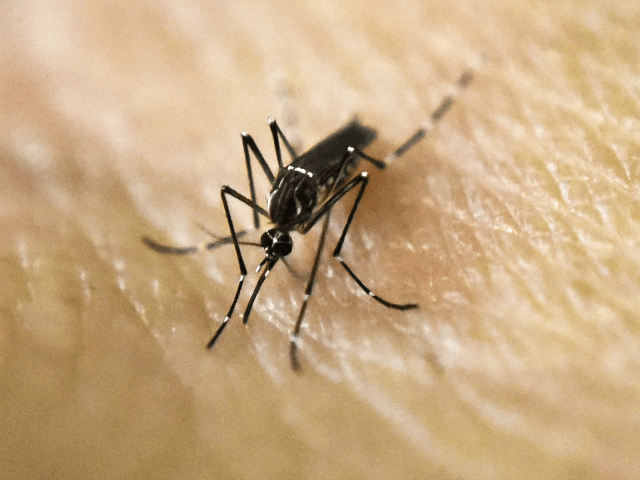A Brazilian professor of law has died from Zika complications.
O Globo reported the death of Bruno Rodrigues de Almeida, 37, who taught International Law at the Rural University of Rio. His father announced his death on social media, where he condemned officials for not doing enough to fight Zika.
“I found a sense of abandonment towards the citizens by the government at the federal, state, and municipal levels … and the authorities in general,” he said. “The international community seems more concerned about the Zika epidemic than our rulers, as well as the health centers Bruno visited.”
He added, “No doubt, we are living in a sad time in our country, state, and cities.”
Bruno’s father and O Globo did not explain the complications that caused his death.
Scientists recently discovered the strongest evidence that links Zika to Guillain-Barré syndrome after analyzing “blood samples from all 42 adults diagnosed with Guillain-Barre syndrome from the 2013-14 outbreak” in the South Pacific and French Polynesia. They found that almost “everyone showed signs of a previous infection.” CBS News reports:
They were compared with patients who did not have the condition and did not have any Zika symptoms but were treated at the same hospital for other illnesses. Tests showed only half of that group of 98 had apparently been infected with the normally mild virus.
The research was published online Monday in the journal Lancet.
“The evidence that links Zika virus with Guillain-Barre syndrome is now substantially more compelling,” said Peter Barlow, an infectious diseases expert at Edinburgh Napier University who was not part of the study. But he noted in a statement that more research was needed before reaching the same conclusion about the outbreak in the Americas, where local factors may be playing a role.
“Guillain-Barré can be a nightmare for those who have it,” Dr. Wellington Galvão, a hematologist in the city of Maceió in northeast Brazil, told The New York Times. “I estimate that Zika increases by about 20 times the probability that an individual can get Guillain-Barré.”
Galvão treated 43 patients with Guillain-Barré in 2015. The country averages 10 to 15 cases a year.
The syndrome struck Patricia Brito, a cashier at a local bakery. One day, she could move her legs. Soon, she could not feel “her arms, her face and the rest of her body.” Doctors placed “her on a ventilator in an intensive care unit for 40 days.” Brito attends physical therapy “to avoid using a wheelchair.” There is no cure for the syndrome, but Mayo Clinic describes two treatments:
Plasma exchange (plasmapheresis). The liquid portion of part of your blood (plasma) is removed and separated from your blood cells. The blood cells are then put back into your body, which manufactures more plasma to make up for what was removed. Plasmapheresis may work by ridding plasma of certain antibodies that contribute to the immune system’s attack on the peripheral nerves.
Immunoglobulin therapy. Immunoglobulin containing healthy antibodies from blood donors is given through a vein (intravenously). High doses of immunoglobulin can block the damaging antibodies that may contribute to Guillain-Barre syndrome.
El Savador recorded 46 cases of Guillain-Barré between December 1 and January 6. The country averages 14 cases a month. In Colombia, Deputy Health Minister Fernando Ruiz reported 41 cases of Guillain-Barré “that appear to be linked to Zika infections.” Venezuelan Health Minister Luisana Melo announced 255 cases of Guillain-Barré syndrome. Former Health Minister Jose Oletta claimed that number proves Venezuela has more than the estimated 4,500 Zika cases.
“Normally, we’d expect 30 or 40 cases of Guillain-Barré a month,” he said. “What this shows is that the minister has the total number of Zika cases wrong.”
The Venezuelan media claimed eleven people died from the syndrome, but a week later, the government only confirmed three Zika deaths.

COMMENTS
Please let us know if you're having issues with commenting.